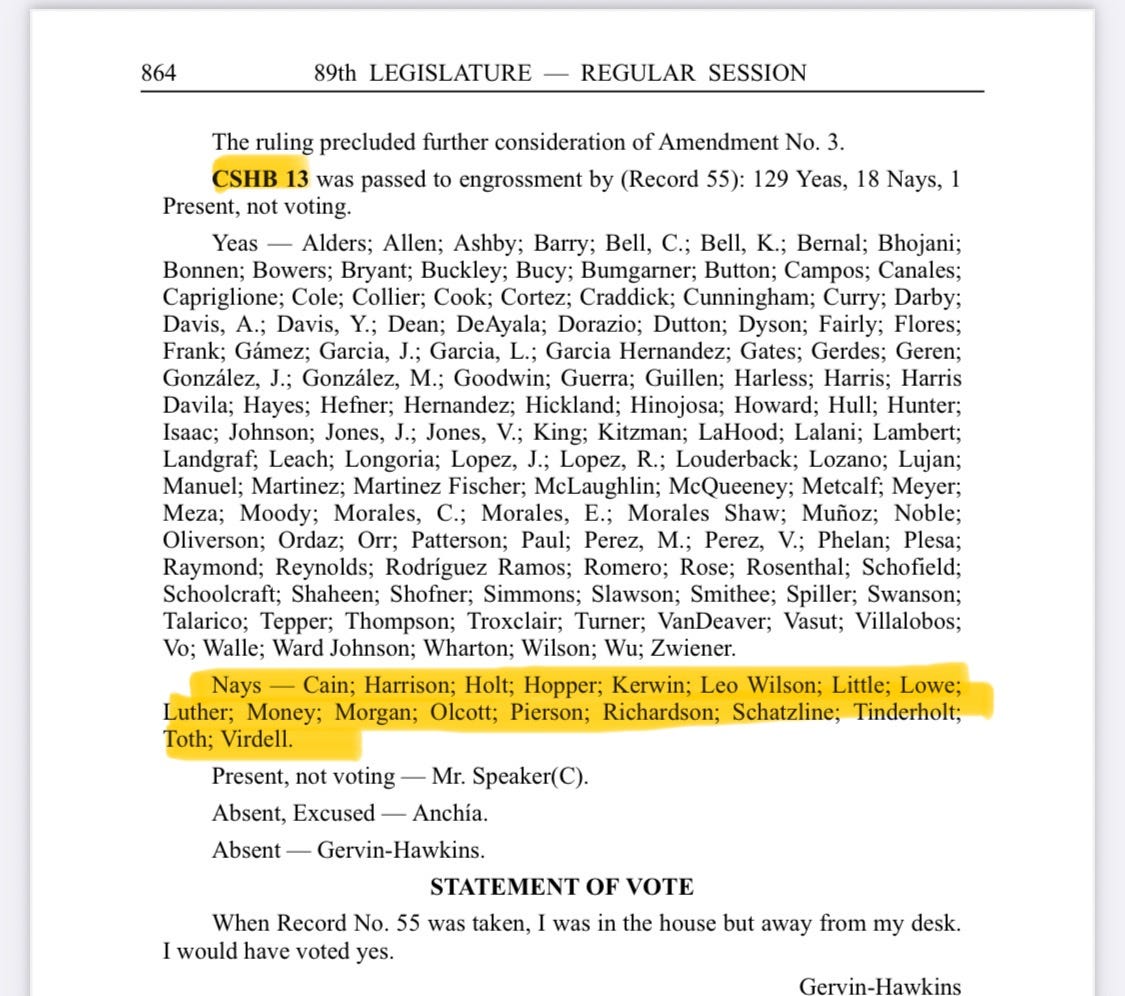Lessons not Learned.
HB 13 by Ken King would provided grants for emergency warning systems.
All eyes are on the Texas Hill Country as it deals with rescues and recovery due to massive flooding. We pray for the families who are missing their loved ones, and every Texan feels grief for the unimaginable loss of the babies who were campers at Camp Mystic in Hunt, Texas. This is a tragedy that will have a lasting impact on us for years to come.
We cannot avoid natural disasters, such as weather. I know this firsthand, as I have witnessed it as the daughter of a farmer and rancher. Whether it be hail, drought, wildfires, tornadoes, or flooding, natural disasters are unavoidable.
But what should not be unavoidable is the responsibility of our leadership to bring urgency to these issues, which significantly impact the lives of everyday Texans. The Governor and Legislators must take responsibility for the safety of our communities by passing legislation and allocating funding to those areas as a top priority, especially in the more rural parts of our state, which are underresourced both in infrastructure funding and personnel.
In 2023, the Texas Panhandle suffered immeasurable loss due to wildfires, which scorched over 1 million acres of land, endangered communities, and dealt a financial setback that will impact generations of ranching families in our region.
Following the devastation of those wildfires, then Speaker Dade Phelan appointed Representative Ken King to lead an investigative wildfire committee with fellow House members, soon-to-be Speaker Dustin Burrows, coastal Representative Todd Hunter, and local landowners from the Panhandle who had been impacted by the fires.
The committee held an intensive three-day hearing in Pampa, Texas, which I attended, and heard blunt and brutal testimony from ranchers, first responders, local elected officials, and citizens regarding their experiences with the government during the wildfires.
An overarching theme during these hearings, as outlined in the committee’s report, was the lack of funding for first responder resources in rural areas, as well as deficiencies in communication infrastructure and outdated technology.
Based on the committee's recommendations, King filed a series of bills to address the gaps and improve the state’s infrastructure and resources, thereby enhancing the landscape for Texas communities in the event of future natural disasters.
One of the bills, HB 13, would have established the Texas Interoperability Council, which would be responsible for developing, coordinating, and governing emergency communications equipment and infrastructure statewide, and administering grants to assist local governments in acquiring emergency communications and expanding their emergency communications infrastructure.
HB 13 passed the House overwhelmingly but died in the Texas Senate without ever receiving a hearing. A handful of legislators in the House voted against HB 13, including Representative Wes Virdell, District 52, who represents Kerr County in the Texas Legislature. Kerr County is ground zero for this week’s tragedy, and this bill would have provided funding to counties like Kerr to purchase sirens or other emergency alert equipment, which might have provided the warning the communities needed to avoid the massive loss of lives.
As the rescue efforts are still underway, I acknowledge that today is not the right time to have this debate, but it must happen in the days, weeks, and months ahead. We need to start asking the hard questions of our elected officials. Texas is a booming, growing state, and we need a greater focus on the issues that can improve our state and its communities. Our families should feel safe camping by the river over the 4th of July weekend. Parents should not fear sending their children to summer camp. Communities need to know that the people we elect to represent us are addressing these issues with urgency.
On July 21st, just a few weeks away, the Governor will bring legislators back to Austin for a Special Session. Will HB 13 be added to the call? Will the Senate take this bill more seriously and hold a hearing? Will West Virdell vote against the best interests of his district again, or maybe he will see things differently now?
In typical Panhandle fashion, Ken King has taken the bull by the horns and provided Texas with a roadmap to move the state into an era of improved communication by establishing the Interoperability Council and allocating grants to enhance warning systems in our communities.
The time is now for our legislators to turn tragedy into action for our communities. An interoperability council and grant program is now a no-brainer and should be a priority. Let’s do this, Texas.


